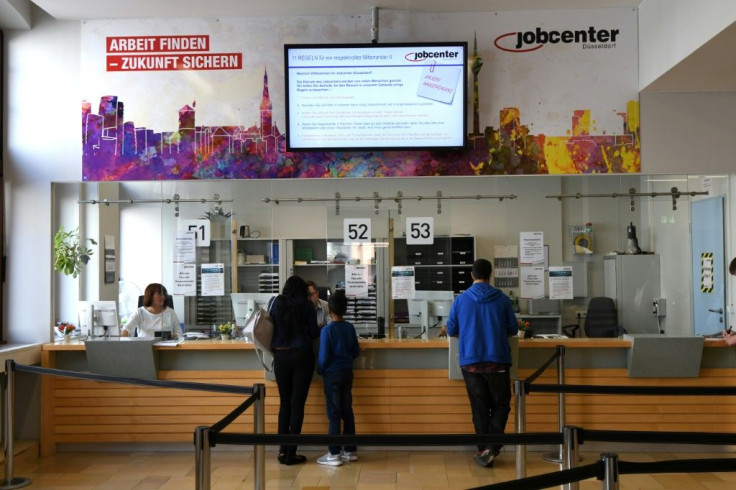German Court Slaps Down Harshest Sanctions Against Jobseekers

Germany's top court on Tuesday put a cap on how far benefits for uncooperative jobseekers can be slashed, in a blow to the controversial unemployment reforms rammed through by Gerhard Schroeder's government in 2005.
Judges at the federal constitutional court said that the total cut in benefits should never be allowed to exceed 30 percent, and in cases where lower payments would cause "extreme hardship", no penalties need to be imposed at all.
The sanctions allowed under Germany's so-called Hartz IV benefits system, which combines social welfare and long-term unemployment payments, have long been contested with critics saying they violate the right to a dignified existence.
Under the current rules, a jobseeker's monthly dole can be docked if they fail to turn up for a job interview, turn down employment or miss training opportunities.
In extreme cases, recipients can lose up to 60 percent of their benefits -- and repeat offenders can be cut off altogether for three months.
But judges in Karlsruhe found that the 60-percent reduction was illegal because it "seriously encroaches upon the minimum standard of living guaranteed by fundamental rights".
Furthermore, judges said that a 30-percent dole cut was "only permissible if the sanction can be waived in cases of extreme hardship" and if its three-month duration can be shortened depending on the jobseeker's cooperation.
Some 5.6 million people were on Hartz IV benefits in Germany last year.
A single jobseeker with no children currently receives 424 euros ($472) a month, while couples get 764 euros.
In 2018, a total of 441,000 jobseekers were financially penalised at least once.
The penalties for falling foul of the job centre's guidance are harshest for those under the age of 25.
In the wake of the ruling, Dietmar Bartsch, a leading MP from the far-left opposition party Die Linke, called for a complete overhaul of the system.
"Hartz IV plunges people and their families into the abyss," he tweeted.
"We need a new system of unemployment benefits that provides security and removes the fear of social decline."
Labour Minister Hubertus Heil of the centre-left Social Democrats (SPD) said the government would begin talks "immediately" on how to implement the court order.
The minister, who has previously defended the sanctions as necessary tools, added that the ruling offered a "huge opportunity" to resolve the 14-year row over Hartz IV.
Hated reforms
The Hartz IV system is part of the hated "Agenda 2010" labour reforms forced through by then chancellor Schroeder's SPD-led government to tackle the country's high unemployment.
The reforms have been credited with helping Germany achieve record-low unemployment of around five percent, but the tough-love approach has been intensely divisive -- including within the SPD.
Critics say Hartz IV has shunted people into low-paid, precarious jobs, and increased inequality in Germany.
Opponents also say the threat of sanctions places a heavy psychological burden on jobseekers.
The unpopular measures led to a slump in support for the SPD and Schroeder himself went on to lose the following general election in 2005 to current chancellor Angela Merkel of the centre-right CDU.
Tuesday's court setback is likely to revive debate about Schroeder's reforms legacy, putting further strain on Merkel's shaky coalition with the SPD.
The ruling was sparked by a complaint from a jobseeker in the city of Erfurt who was sanctioned after refusing a job in a warehouse in 2014 because he wished to work in sales.
His benefits were then docked again when he missed an opportunity to trial a sales position.
He lost a total of 234.60 euros in monthly payments, pushing him into "a downward spiral of resignation and existential fear", according to his lawyer.
© Copyright AFP 2024. All rights reserved.





















